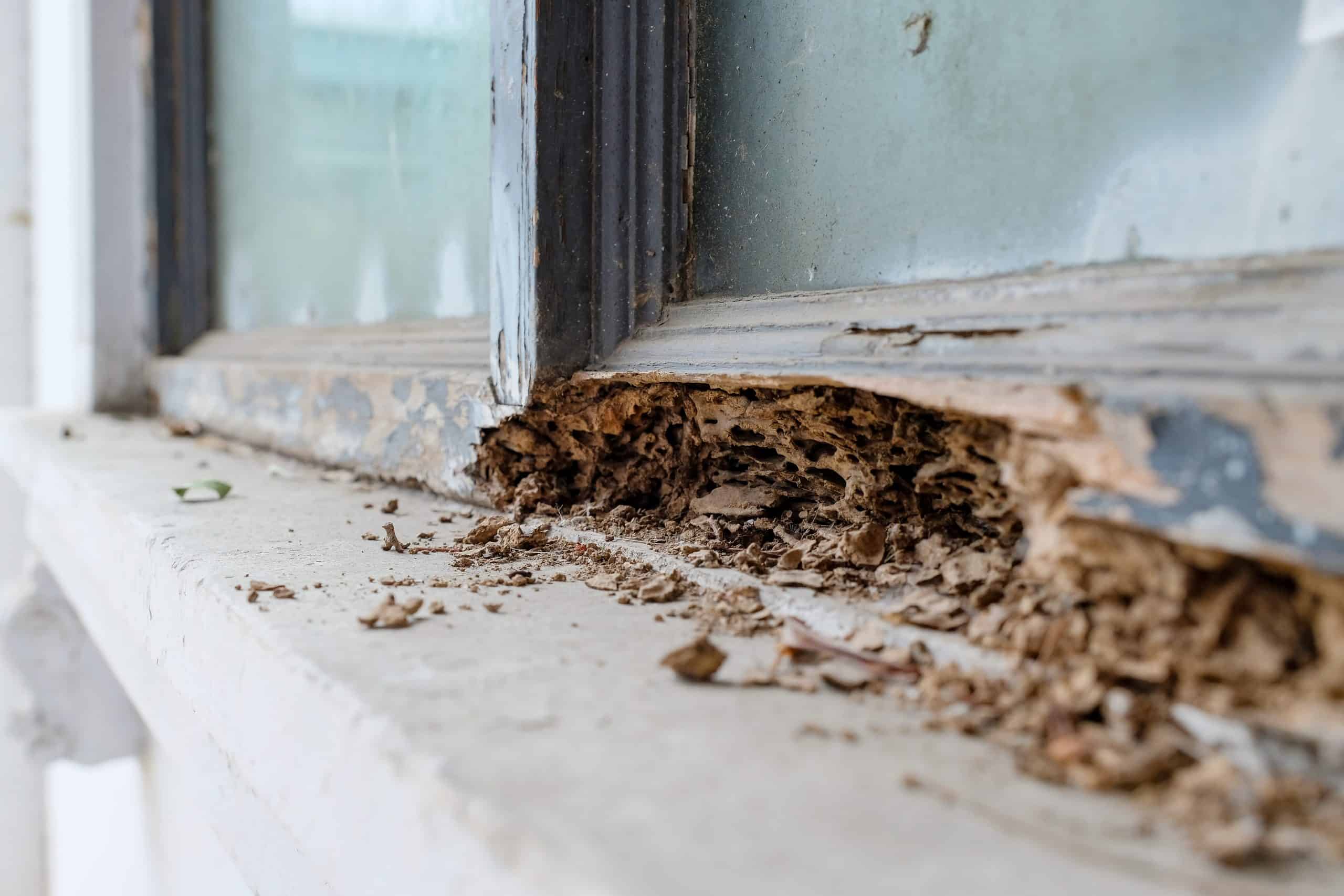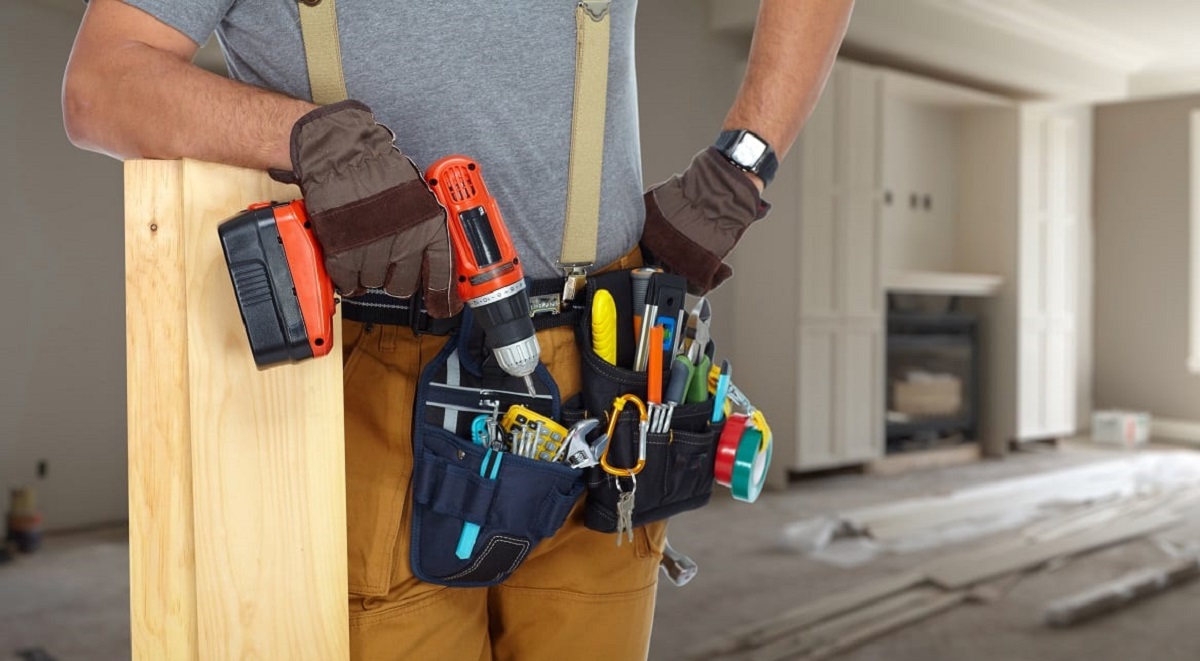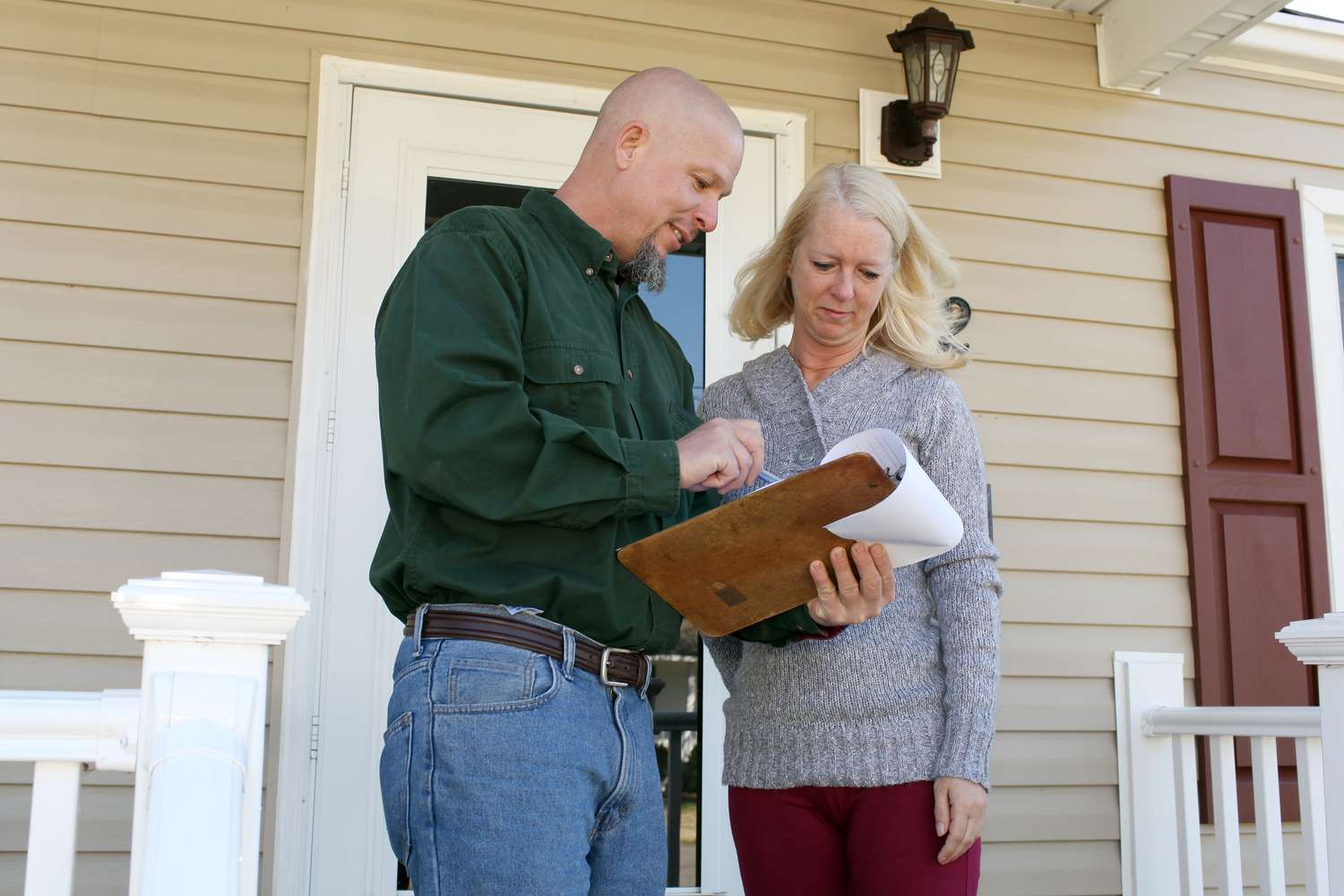Home>Home Maintenance>In Texas, Who Orders The Inspection: The Buyer Or The Seller?


Home Maintenance
In Texas, Who Orders The Inspection: The Buyer Or The Seller?
Modified: March 6, 2024
Find out who is responsible for ordering home inspections in Texas - the buyer or the seller. Learn more about home maintenance and inspection requirements.
(Many of the links in this article redirect to a specific reviewed product. Your purchase of these products through affiliate links helps to generate commission for Storables.com, at no extra cost. Learn more)
Introduction
Purchasing a home is a significant investment, and ensuring its structural integrity and maintenance needs is crucial. In the state of Texas, one important step in the home buying process is the inspection. This thorough examination of the property helps to uncover any underlying issues or potential red flags that may affect the value or safety of the property.
However, a common question that arises is, who is responsible for ordering the inspection: the buyer or the seller? Understanding the dynamics of this process can help both parties navigate the transaction smoothly and ensure a fair and informed decision. In this article, we will delve into the inspection process in Texas and explore the roles and responsibilities of both buyers and sellers.
Before delving into the specifics, it’s important to note that Texas is a “caveat emptor” state, which means “buyer beware.” In this context, it implies that buyers have a primary responsibility to conduct due diligence and ensure the property’s condition before purchase. However, the inspection process provides an opportunity for both parties to evaluate the property together and negotiate any necessary repairs or adjustments.
Now, let’s examine the respective responsibilities of buyers and sellers when it comes to ordering and conducting inspections in Texas.
Key Takeaways:
- In Texas, buyers are responsible for ordering and paying for home inspections. They should be present during the inspection, review the report, and use the findings to make informed decisions about their purchase.
- Sellers must disclose known issues and provide access for inspections. Negotiating inspection responsibilities is crucial, and both parties should communicate openly and seek legal guidance if needed.
Understanding the Inspection Process in Texas
In Texas, the home inspection process typically occurs after a purchase agreement has been signed by both the buyer and the seller. It is a crucial step in the home buying process as it helps to uncover any potential issues that may not be immediately visible to the untrained eye.
During the inspection, a licensed home inspector will thoroughly examine the property, including its structural components, electrical systems, plumbing, HVAC systems, and more. They will provide a detailed report highlighting any existing problems, safety concerns, or maintenance issues that may require attention.
It is important for buyers to understand that the home inspection is merely an assessment of the property’s current condition and does not guarantee its future performance. However, it provides valuable information that buyers can use to make informed decisions regarding their purchase.
Buyers are strongly encouraged to be present during the inspection process. This allows them to ask questions, gain a better understanding of the property’s condition, and discuss any concerns with the inspector directly. Additionally, being present during the inspection gives buyers the opportunity to learn more about the property’s systems and maintenance requirements.
Once the inspection is complete, the buyer will receive a written report from the inspector. This report will outline the findings, including any issues or concerns identified during the inspection. Buyers can then use this information to assess the property’s condition and decide if any additional negotiations or repairs are necessary before finalizing the purchase.
It is important to note that while there are no specific regulations regarding the qualifications or licensing requirements for home inspectors in Texas, it is advisable to choose a licensed and experienced inspector. Requesting references, credentials, and reviews can help ensure that the selected inspector is knowledgeable and trustworthy.
Now that we have a better understanding of the inspection process, let’s explore the respective responsibilities of buyers and sellers when it comes to ordering and conducting inspections in Texas.
Buyer’s Responsibility for Inspection
In Texas, the buyer generally holds the primary responsibility for ordering and paying for the home inspection. As mentioned earlier, Texas operates under the “buyer beware” principle, emphasizing the importance of due diligence on the part of the buyer.
As the buyer, it is crucial to schedule the inspection promptly after signing the purchase agreement. This allows sufficient time to conduct the inspection, review the report, and negotiate any necessary repairs or adjustments with the seller.
When selecting a home inspector, it is essential to choose someone who is experienced, licensed, and reputable. Seek recommendations from trusted sources, such as friends, family, or real estate professionals, to ensure that you hire a qualified professional. A thorough inspection can uncover potential issues that may affect the value or safety of the property, giving you the opportunity to make an informed decision.
During the inspection, it is highly recommended that the buyer be present. Being present allows you to ask questions, seek clarifications, and gain a better understanding of the property’s condition. It also gives you the opportunity to identify any immediate concerns or potential areas for further investigation.
After receiving the inspection report, carefully review it with the help of your real estate agent or attorney. The report will outline any identified issues or concerns, ranging from minor repairs to major structural problems. Use this information to determine if any further negotiations with the seller are necessary.
It is important to note that the inspection report does not require the seller to make any repairs or concessions. However, buyers can use the report findings as leverage to negotiate repairs, request a price reduction, or even request that major issues be addressed before closing the deal.
In some cases, buyers may choose to back out of the agreement altogether if the inspection reveals significant problems that were not disclosed during the negotiation process. In such instances, the buyer can terminate the contract depending on the terms and conditions outlined in the purchase agreement.
Understanding your responsibilities as a buyer when it comes to the home inspection process puts you in a stronger position to protect your interests and make informed decisions about your potential investment.
Next, we will delve into the seller’s responsibilities when it comes to home inspections in Texas.
Seller’s Responsibility for Inspection
In Texas, the seller has certain responsibilities related to the home inspection process. While the buyer is generally responsible for ordering and paying for the inspection, the seller has obligations to disclose any known issues and provide access to the property for the inspection to take place.
First and foremost, sellers are legally obligated to disclose any known defects or problems with the property. This includes both physical issues and any potential hazards that may affect the buyer’s decision to purchase the property. Sellers must provide a Seller’s Disclosure Notice, which outlines any known issues or repairs that have been done on the property in the past
During the inspection process, it is important for sellers to allow the licensed inspector access to the property. This means making arrangements to ensure that the inspector can thoroughly assess the property without any hindrances. Sellers should ensure that all areas, including crawl spaces, attics, and utility rooms, are accessible to the inspector to complete a comprehensive assessment.
It is important to note that sellers are not required to make repairs or concessions based on the inspection report. However, in most cases, buyers will use the inspection report as a negotiating tool to request repairs or adjustments to the purchase agreement. It is ultimately up to the seller to decide whether or not they are willing to make any requested repairs or adjustments.
If the seller is willing to make repairs as part of the negotiation process, it is advisable to hire licensed and qualified professionals to carry out the work. Providing documentation of the repairs can help instill confidence in the buyer and demonstrate that the issues have been addressed properly.
It is important for sellers to understand that failing to disclose known defects or deliberately concealing information about the property’s condition can lead to legal consequences. Sellers can be held liable for misrepresentation or non-disclosure, which can result in financial penalties, legal disputes, or even the cancellation of the sale.
By fulfilling their responsibilities in the inspection process, sellers can demonstrate transparency, build trust with the buyer, and ensure a smoother transaction. Understanding these responsibilities and fulfilling them in a timely and honest manner can help sellers navigate the inspection process successfully.
Next, let’s explore how inspection responsibilities can be negotiated between the buyer and the seller.
Negotiating Inspection Responsibilities
The inspection process in Texas provides an opportunity for both buyers and sellers to negotiate the responsibilities associated with any repairs or adjustments that may be necessary based on the inspection report. This negotiation typically takes place after the buyer has received the inspection report and reviewed it with their real estate agent or attorney.
Buyers may use the findings from the inspection report to request repairs, ask for a price reduction, or even request that certain major issues be addressed by the seller before closing the deal. However, sellers are not obligated to agree to any repair requests or concessions, and negotiations can vary depending on the individual circumstances of the transaction.
When negotiating inspection responsibilities, it is crucial for both parties to approach the process with open communication, flexibility, and a willingness to find a mutually beneficial solution. Here are some key points to consider during the negotiation process:
- Assess the significance of the issues: Determine the severity of the identified issues and their potential impact on the property’s value and safety. This will help both parties prioritize the necessary repairs or adjustments.
- Consider the cost: Evaluate the estimated cost of repairs or adjustments and the financial implications for both the buyer and the seller. This includes considering the potential impact on the final sale price.
- Seek professional opinions: Consult with contractors or experts to obtain additional information or estimates for any required repairs. This can help both parties make informed decisions regarding the negotiation process.
- Be open to compromise: Recognize that negotiation is a give-and-take process, and both parties may need to compromise to reach a mutually acceptable agreement. This may involve sharing the cost of repairs, agreeing to lesser repairs, or finding alternative solutions.
- Put agreements in writing: Once an agreement is reached, it is crucial to document the agreed-upon repairs or adjustments in writing as an addendum to the purchase agreement. This ensures that both parties are clear on their obligations and can help prevent any misunderstandings in the future.
It is important to note that the negotiation process may involve multiple rounds of discussion and counteroffers. Working with experienced real estate professionals, such as agents or attorneys, can provide valuable guidance and assistance throughout the negotiation process.
Understanding and effectively negotiating inspection responsibilities can help buyers and sellers reach a satisfactory resolution that addresses any necessary repairs or adjustments. By approaching the process with open communication and a willingness to find common ground, both parties can ensure a smoother transaction.
Now, let’s examine some real-life examples to illustrate how inspection responsibilities can play out in different scenarios.
In Texas, the buyer typically orders the inspection. It’s important for the buyer to schedule the inspection as soon as possible after the offer is accepted to ensure there is enough time to address any issues that may arise.
Case Studies: Examples of Inspection Responsibilities
Examining real-life examples can provide valuable insight into how inspection responsibilities are handled in various situations within the context of a home buying transaction in Texas. Let’s explore a couple of hypothetical case studies to illustrate different scenarios:
-
Case Study 1: Minor Repairs
Buyer A has completed a home inspection and discovered some minor issues, such as a leaky faucet, loose handrails, and a cracked tile. The estimated cost for these repairs is relatively low, and they believe they can handle these tasks themselves. During the negotiation process, Buyer A requests a minor reduction in the purchase price instead of requesting the seller to make repairs. Upon reviewing the request, Seller B agrees to a slight reduction in the purchase price, and both parties agree to proceed with the transaction.
-
Case Study 2: Major Structural Issue
Buyer C’s inspection report reveals a significant structural issue with the foundation of the property. The estimated cost for repairs is substantial, and Buyer C is concerned about the long-term viability of the property. They request that the seller address the foundation issue before proceeding with the purchase. After thorough discussions, Seller D agrees to hire a reputable foundation repair company to fix the issue before the closing date. The repairs are completed, and both parties proceed with the transaction.
These case studies highlight the range of possibilities when it comes to negotiating inspection responsibilities. In Case Study 1, the buyer opted for a price reduction instead of requesting repairs, while in Case Study 2, the seller agreed to address a major issue before the closing. The outcomes of these negotiations depend on the specific circumstances and the willingness of both parties to find common ground.
It is crucial to remember that each situation is unique, and the negotiation process can vary widely. It is imperative for buyers and sellers to communicate openly and work together to find a solution that meets both parties’ needs and ensures a fair and transparent transaction.
However, it is essential to understand that there may be potential legal implications involved in the inspection process. Let’s explore these implications in the next section.
Potential Legal Implications
When it comes to the inspection process in Texas, it is important for both buyers and sellers to be aware of the potential legal implications that can arise. Failure to adhere to certain obligations or misrepresentation of the property’s condition can lead to legal disputes and financial consequences. Here are some potential legal implications to consider:
- Failure to disclose: Sellers have a legal obligation to disclose any known defects or issues with the property. Failure to disclose can result in legal action by the buyer, who may seek financial compensation or contract termination. It is crucial for sellers to provide an accurate and comprehensive Seller’s Disclosure Notice to avoid potential legal disputes.
- Misrepresentation: Providing false or misleading information about the property’s condition can lead to claims of misrepresentation. If a buyer can prove that they relied on false information provided by the seller, they may have grounds to seek legal remedies, such as contract termination, financial compensation, or rescission of the transaction.
- Breach of contract: If either party fails to fulfill their obligations as outlined in the purchase agreement, it can lead to a breach of contract. For example, if the seller refuses to allow access for the inspection or the buyer fails to provide a timely inspection report, it can result in legal action to enforce the terms of the contract or seek damages.
- Negotiation disputes: Disagreements over repair requests or negotiations can escalate into legal disputes if the parties cannot reach a mutually satisfactory agreement. In such cases, mediation or arbitration may be necessary to resolve the dispute and avoid litigation.
- Professional negligence: If a licensed home inspector fails to conduct a thorough inspection or provides inaccurate information, it can lead to claims of professional negligence. Buyers who suffer financial losses due to negligent inspection practices may seek compensation from the inspector’s errors and omissions insurance policy.
It is important to consult with a qualified real estate attorney if you find yourself facing any potential legal issues related to the inspection process. They can provide guidance, represent your interests, and help navigate the complexities of real estate law in Texas.
To avoid legal implications, both buyers and sellers should approach the inspection process with transparency, honesty, and a willingness to fulfill their respective obligations. Clear communication, adherence to legal requirements, and working in good faith can contribute to a smooth and legally compliant transaction.
Now, let’s summarize the information we have covered so far.
Conclusion
The inspection process in Texas is a vital step in the home buying journey, providing buyers with valuable information about the condition of the property and an opportunity to negotiate repairs or adjustments. Understanding the roles and responsibilities of both buyers and sellers in this process is crucial for a successful transaction.
Buyers in Texas are generally responsible for ordering and paying for the inspection. They should schedule the inspection promptly, be present during the process, review the report thoroughly, and use the findings to make informed decisions about the purchase. Sellers, on the other hand, have the responsibility to disclose any known issues and provide access to the property for the inspection to take place.
Negotiating inspection responsibilities is an essential part of the process. Buyers can request repairs or adjustments, while sellers can agree to make repairs, offer a reduced purchase price, or negotiate alternative solutions. It is crucial for both parties to approach the negotiation process with open communication, flexibility, and a desire to find a mutually beneficial agreement.
However, it is important to be aware of the potential legal implications that can arise during the inspection process. Failure to disclose known defects, misrepresentation of the property’s condition, breach of contract, negotiation disputes, or professional negligence can lead to legal disputes and financial consequences. Seeking the advice of a qualified real estate attorney can help navigate these potential challenges.
In conclusion, the inspection process in Texas serves as a crucial step in the home buying process, providing buyers with valuable information and an opportunity to negotiate repairs or adjustments. By understanding their respective responsibilities, communicating openly, and seeking legal guidance when necessary, both buyers and sellers can navigate this process successfully and ensure a fair and transparent transaction.
Remember, each real estate transaction is unique, and it is advisable to consult with professionals such as real estate agents, attorneys, and inspectors to ensure compliance with local regulations and best practices.
Frequently Asked Questions about In Texas, Who Orders The Inspection: The Buyer Or The Seller?
Was this page helpful?
At Storables.com, we guarantee accurate and reliable information. Our content, validated by Expert Board Contributors, is crafted following stringent Editorial Policies. We're committed to providing you with well-researched, expert-backed insights for all your informational needs.














0 thoughts on “In Texas, Who Orders The Inspection: The Buyer Or The Seller?”